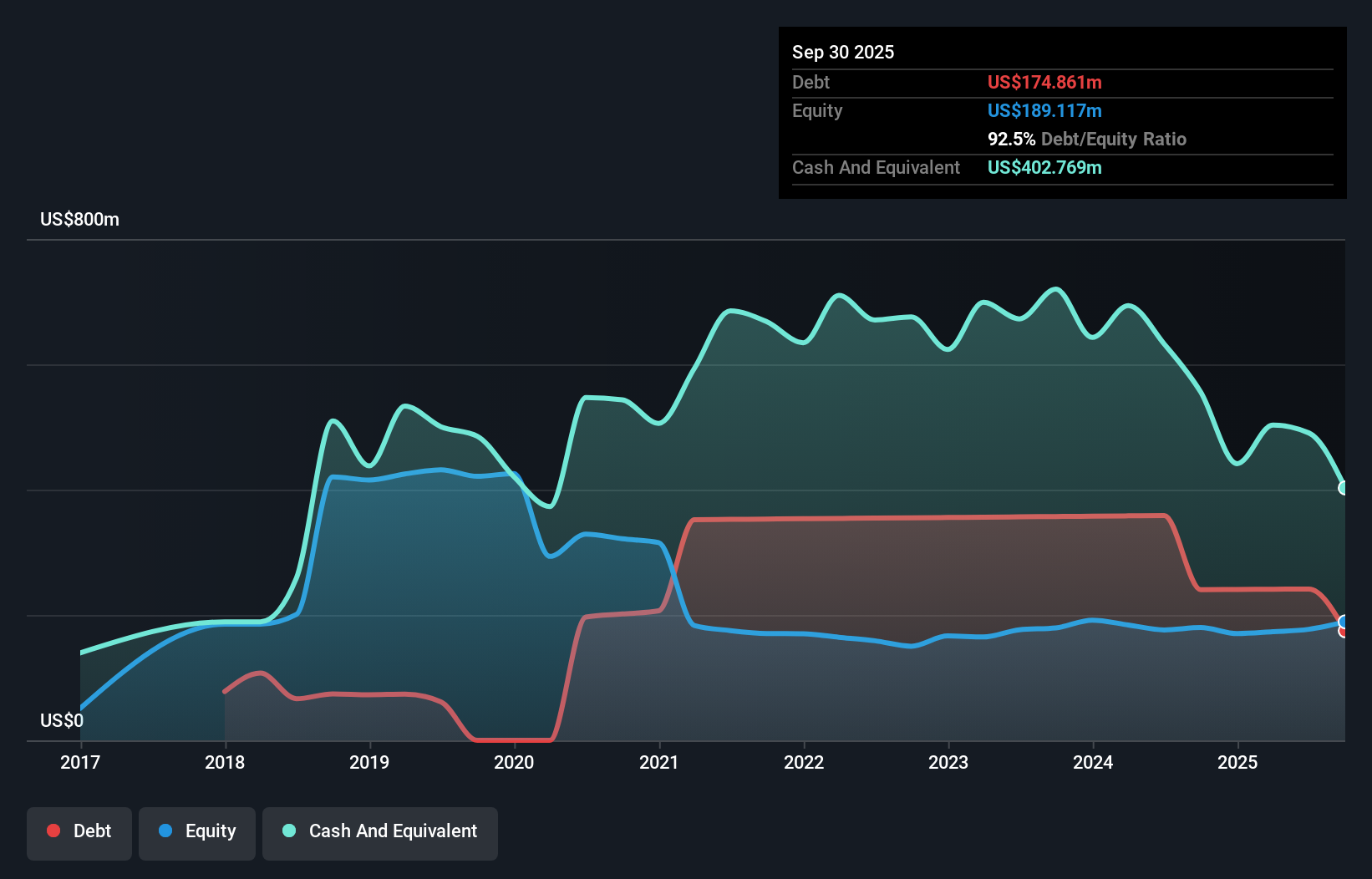Legendary fund manager Li Lu (who Charlie Munger backed) once said, 'The biggest investment risk is not the volatility of prices, but whether you will suffer a permanent loss of capital.' When we think about how risky a company is, we always like to look at its use of debt, since debt overload can lead to ruin. We note that Eventbrite, Inc. (NYSE:EB) does have debt on its balance sheet. But the more important question is: how much risk is that debt creating?
When Is Debt A Problem?
Debt assists a business until the business has trouble paying it off, either with new capital or with free cash flow. In the worst case scenario, a company can go bankrupt if it cannot pay its creditors. However, a more common (but still painful) scenario is that it has to raise new equity capital at a low price, thus permanently diluting shareholders. By replacing dilution, though, debt can be an extremely good tool for businesses that need capital to invest in growth at high rates of return. When we think about a company's use of debt, we first look at cash and debt together.
What Is Eventbrite's Debt?
You can click the graphic below for the historical numbers, but it shows that Eventbrite had US$174.9m of debt in September 2025, down from US$240.4m, one year before. However, it does have US$402.8m in cash offsetting this, leading to net cash of US$227.9m.

A Look At Eventbrite's Liabilities
The latest balance sheet data shows that Eventbrite had liabilities of US$495.1m due within a year, and liabilities of US$60.4m falling due after that. Offsetting this, it had US$402.8m in cash and US$10.1m in receivables that were due within 12 months. So its liabilities total US$142.6m more than the combination of its cash and short-term receivables.
This deficit is considerable relative to its market capitalization of US$212.3m, so it does suggest shareholders should keep an eye on Eventbrite's use of debt. Should its lenders demand that it shore up the balance sheet, shareholders would likely face severe dilution. Despite its noteworthy liabilities, Eventbrite boasts net cash, so it's fair to say it does not have a heavy debt load! When analysing debt levels, the balance sheet is the obvious place to start. But it is future earnings, more than anything, that will determine Eventbrite's ability to maintain a healthy balance sheet going forward. So if you want to see what the professionals think, you might find this free report on analyst profit forecasts to be interesting.
View our latest analysis for Eventbrite
Over 12 months, Eventbrite made a loss at the EBIT level, and saw its revenue drop to US$295m, which is a fall of 12%. That's not what we would hope to see.
So How Risky Is Eventbrite?
Although Eventbrite had an earnings before interest and tax (EBIT) loss over the last twelve months, it generated positive free cash flow of US$19m. So taking that on face value, and considering the net cash situation, we don't think that the stock is too risky in the near term. Until we see some positive EBIT, we're a bit cautious of the stock, not least because of the rather modest revenue growth. When I consider a company to be a bit risky, I think it is responsible to check out whether insiders have been reporting any share sales. Luckily, you can click here ito see our graphic depicting Eventbrite insider transactions.
If, after all that, you're more interested in a fast growing company with a rock-solid balance sheet, then check out our list of net cash growth stocks without delay.
Valuation is complex, but we're here to simplify it.
Discover if Eventbrite might be undervalued or overvalued with our detailed analysis, featuring fair value estimates, potential risks, dividends, insider trades, and its financial condition.
Access Free AnalysisHave feedback on this article? Concerned about the content? Get in touch with us directly. Alternatively, email editorial-team (at) simplywallst.com.
This article by Simply Wall St is general in nature. We provide commentary based on historical data and analyst forecasts only using an unbiased methodology and our articles are not intended to be financial advice. It does not constitute a recommendation to buy or sell any stock, and does not take account of your objectives, or your financial situation. We aim to bring you long-term focused analysis driven by fundamental data. Note that our analysis may not factor in the latest price-sensitive company announcements or qualitative material. Simply Wall St has no position in any stocks mentioned.
About NYSE:EB
Eventbrite
Operates a two-sided marketplace that provides self-service ticketing and marketing tools for event creators in the United States and internationally.
Excellent balance sheet and fair value.
Similar Companies
Market Insights
Community Narratives



